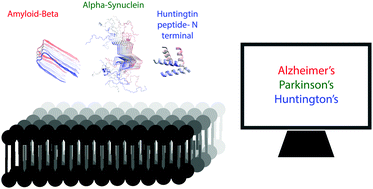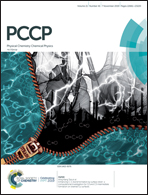Computational insights into lipid assisted peptide misfolding and aggregation in neurodegeneration
Abstract
Peptide misfolding and aberrant assembly in membranous micro-environments have been associated with numerous neurodegenerative diseases. The biomolecular mechanisms and biophysical implications of these amyloid membrane interactions have been under extensive research and can assist in understanding disease pathogenesis and potential development of rational therapeutics. But, the complex nature and diversity of biomolecular interactions, structural transitions, and dependence on local environmental conditions have made accurate microscopic characterization challenging. In this review, using cases of Alzheimer's disease (amyloid-beta peptide), Parkinson's disease (alpha-synuclein peptide) and Huntington's disease (huntingtin protein), we illustrate existing challenges in experimental investigations and summarize recent relevant numerical simulation studies into amyloidogenic peptide–membrane interactions. In addition we project directions for future in silico studies and discuss shortcomings of current computational approaches.



 Please wait while we load your content...
Please wait while we load your content...